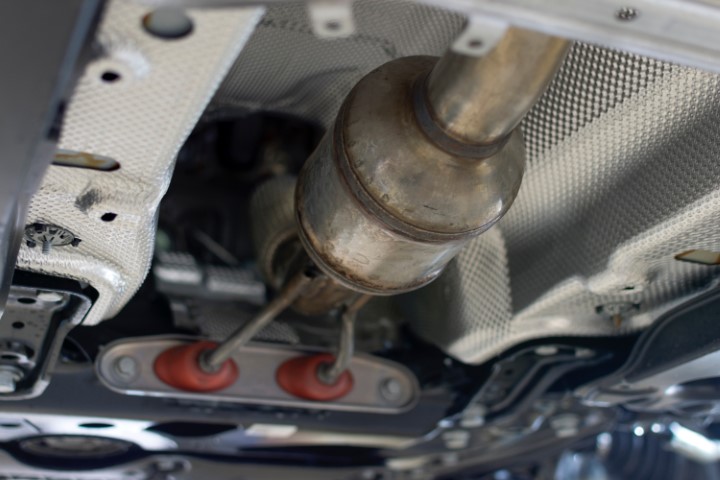Diesel Particulate Filter System - Care and Maintenance
Diesel particulate filter systems (DPF) are standard equipment on most diesel engines now. Their basic function is to trap the soot particles of...

Turbochargers have been in use in the United States since the 1930s and are more common on heavy-duty vehicles than on lightweight cars and trucks. They are essential to modern trucks because they increase the efficiency and power of the engine by forcing extra air into the combustion chamber. This gives more power than a naturally aspirated engine, because combustion is limited or improved by the amount of oxygen available. Forcing more air into the combustion zone gives you the ability to have more combustion reactions (for lack of a better way of putting it).
As essential as these pieces of hardware are, they are expensive to fix or replace. You’re looking at a couple thousand for a car turbo, up to five figures for the turbo on a modern diesel big rig truck. Because this is such a large outlay, it makes sense to stay on top of the common causes of turbo failure and what can be done to prevent damage.
Turbocharger units themselves rarely fail (less than 1%) because of a manufacturing defect. They are very reliable pieces of equipment. Yet something causes them to fail. And when they fail, your budget knows it. Most of the time, a turbocharger failure is due to
If you’re replacing a failed turbocharger, your mechanic should tell you to find out what caused the first unit to go bad. You don’t want an unresolved problem killing your second unit.
‘Damage from a foreign object’ kind of runs under the classification of ‘a tree fell on my car’. It’s not something you can normally avoid.
But the other two are oil-related and very much preventable. How do these conditions happen? Why do turbochargers break down under their influence?
First, understand what a turbocharger has to do to do what it’s supposed to.
When it’s working properly, a turbocharger will turn at extremely high RPMs - some units exceeding 100,000. The Garrett VNT15 turbo runs at 180,000 rpm. At such excessive speeds, bearings would be useless and would not hold up to the stress. So the unit uses a bronze and brass bushing that is bathed in a constant supply of oil. The unit also has a shaft with an exhaust-driven impeller on one end, and a fan (compressor) on the other end that makes up part of the air intake system (remember the turbocharger’s purpose of forcing air into the engine). This fan also floats on a film of oil that is essential to its working life.
This is why oil health is so important to keep a turbocharger in working order. The demands on the unit are so great that any oil failure means destruction for the unit. If you start to get wear on the shaft and bushing, the shaft will start to wobble. This causes oil to go past the seals on either end. Or the oil can start to leak out and get into the exhaust/intake manifolds, where you witness an oil consumption problem. In either case, it’s an eventual death sentence for that turbocharger.
How can these kinds of failures happen when these turbo systems obviously aren’t designed to let that happen? They happen when unexpected wear appears on some of these essential parts. The oil gets dirty or contaminated from long-term use, leading to bearing scratching and scoring. This inevitably leads to excessive wear, followed by failure.
A bigger issue is what can happen when there is a momentary lack of lubrication. A turbo spinning at 180,000 rpm is going to suffer tremendously from even the most momentary of drops in oil pressure. Overheating comes on in the blink of an eye, and essential parts are destroyed.
You know what’s the worst thing you can do to a turbocharger? Putting it another way, if your goal is to destroy your turbo in as short a time as possible, what should you do? How about keeping it running after you shut the engine off? Or revving the engine right before shutting it off. Truck drivers have a habit of doing that. And it’s terrible for the turbo.
In both of these cases, once you shut the engine off, the turbo is still spinning. But there’s no oil pressure now. Scoring of the metal parts can eventually happen in this case.
The best thing you can do in this case is idle the engine for a few minutes before shutting it off completely. This allows the turbo to slow down before the oil flow stops when the engine stops.
Another thing you can do is try an oil treatment like X-tra Lube. We formulated X-tra Lube to apply micrometallic particles to the metal surfaces for added protection in situations such as loss of oil pressure as we’ve described above. X-tra Lube Oil Treatment is tremendously effective at maximizing turbocharger life because it protects better than anything else against these catastrophic dangers that shorten turbocharger life.
Image Credit: Wikipedia

Diesel particulate filter systems (DPF) are standard equipment on most diesel engines now. Their basic function is to trap the soot particles of...
With an ASE-certified master mechanic on staff, we get all sorts of questions about gas and diesel engine problems. Some of them are pretty general...
Did you know that while the engine oils for gasoline and diesel engines may seem identical at a glance, their unique demands paint a different story?"